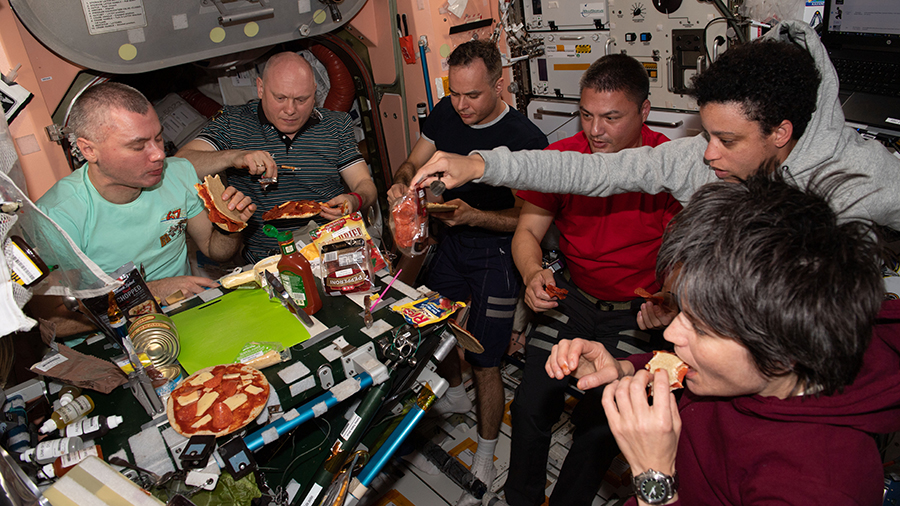
The Expedition 67 crew members tended to plants and explored artificial intelligence aboard the International Space Station today. The four astronauts and three cosmonauts also split their day configuring a U.S. airlock and investigating how microgravity affects the human body.
NASA Flight Engineer Bob Hines worked in the Columbus laboratory module on Thursday afternoon processing radish seeds germinating for the XROOTS space botany study. The investigation uses soilless techniques, such as hydroponics and aeroponics, to nourish and grow plants for producing crops on a larger scale for future space missions.
Hines also joined NASA Flight Engineers Kjell Lindgren and Jessica Watkins configuring the NanoRacks Bishop airlock for its first trash disposal task this weekend. The trio prepared the airlock for its depressurization and closed its hatch in the Tranquility module after packing a trash container in Bishop on Wednesday. The container will be jettisoned outside Bishop towards Earth’s atmosphere for a fiery, but safe disposal on Saturday.
Today, ESA (European Space Agency) astronaut Samantha Cristoforetti set up the Microgravity Science Glovebox and serviced components for the Intelligent Glass Optics space physics study. The advanced experiment uses artificial intelligence to adapt Earth-bound manufacturing techniques for the space environment. Results may improve Earth- and space-based technologies such as communications, aerospace, and medicine.
The orbiting lab’s three cosmonauts participated in a series of human research experiments today. Commander Oleg Artemyev attached sensors to himself to collect data about his cardiac activity while working in weightlessness. Flight Engineers Denis Matveev and Sergey Korsakov collected their blood and saliva samples for analysis to understand how the stresses of spaceflight, including radiation exposure and changes in sleep patterns, affect the human immune system.
